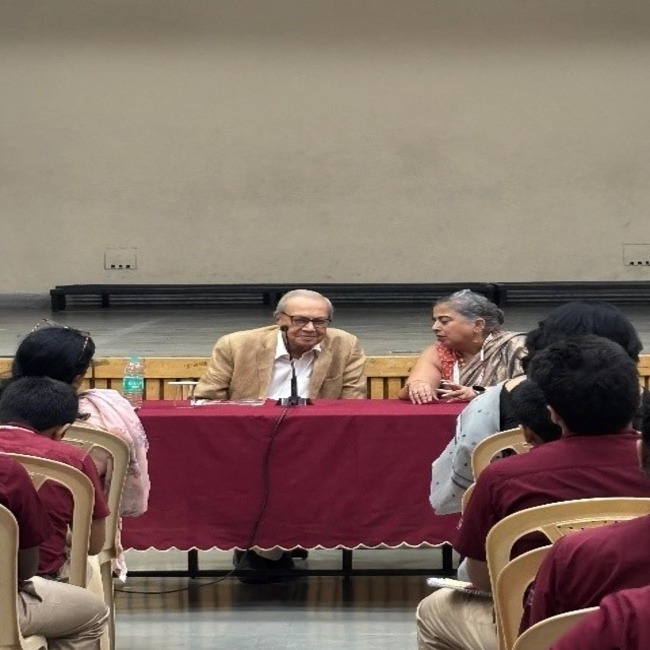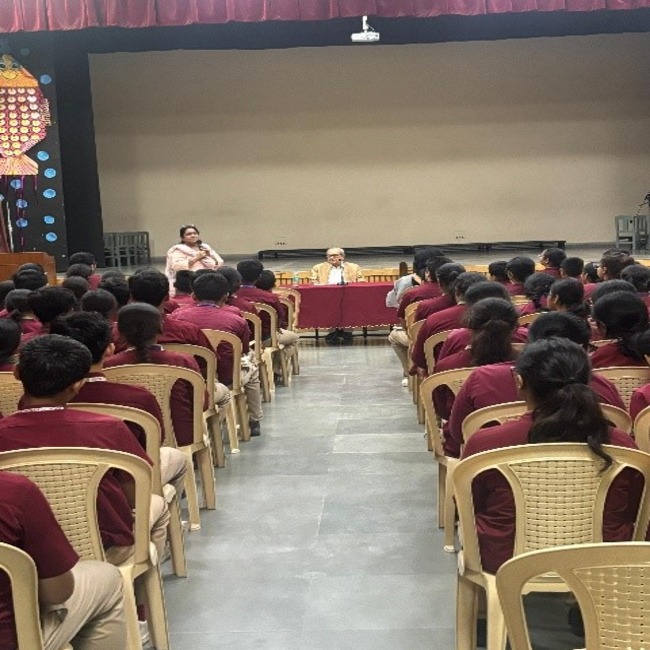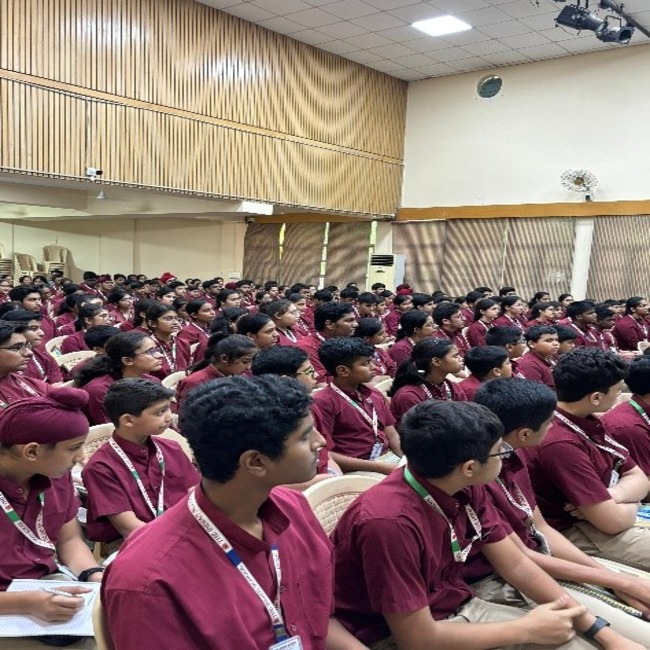Interaction of students with School Chairman Goradia Sir on the topic: Israel - Iran Conflict and the Role of the United States
On 11 July 2025, our School hosted a compelling interactive talk by our Schoo.Chairman, Mr Prafull Goradia, on the ongoing Israel - Iran conflict and the role of the United States. The session offered students a clear and wide-ranging understanding of the complex geopolitical tensions unfolding in the Middle East.
The discussion began with questions from the students, encouraging Sir to trace the historical roots of the conflict. He explained how long-standing religious, political and strategic differences have sustained hostilities in the region. In particular, he highlighted the divide between Sunni and Shia factions. Iran, predominantly Shia, and Israel, with its unique religious identity and strategic alliances, have remained adversaries for decades. These tensions reached its peak during the recent Twelve-Day War in June 2025, when Israel launched pre emptive strikes on Iranian nuclear facilities. The operation led to major infrastructure damage and a tragic loss of lives.
The conversation then shifted to the broader role of the United States in the Middle East. Mr Goradia pointed out that the United States has traditionally been a close ally of Israel, offering both military and diplomatic backing. In the most recent conflict, former President Donald Trump had authorised airstrikes on Iranian nuclear sites, which escalated the crisis further. These decisions sparked debates globally, with critics questioning both the motives and consequences of such interventions. He further explained that diplomatic efforts are often shaped by a blend of strategic interest, global expectations and political agendas. While mediation has the potential to ease tensions, it is not always as neutral or altruistic as it may appear.
Mr Goradia’s clear and well-informed responses on the Sunni–Shia divide, the background of Israel–Iran tensions and the actions of global powers gave students a deep and balanced view of modern diplomacy and global conflict. They left the room with sharper insight into how history, religion, strategy and politics intersect in today’s world.















